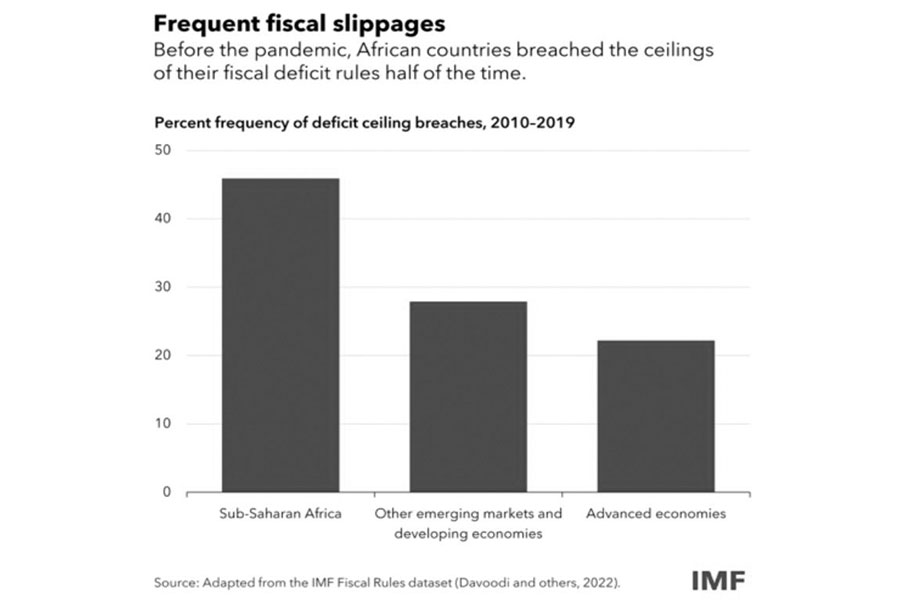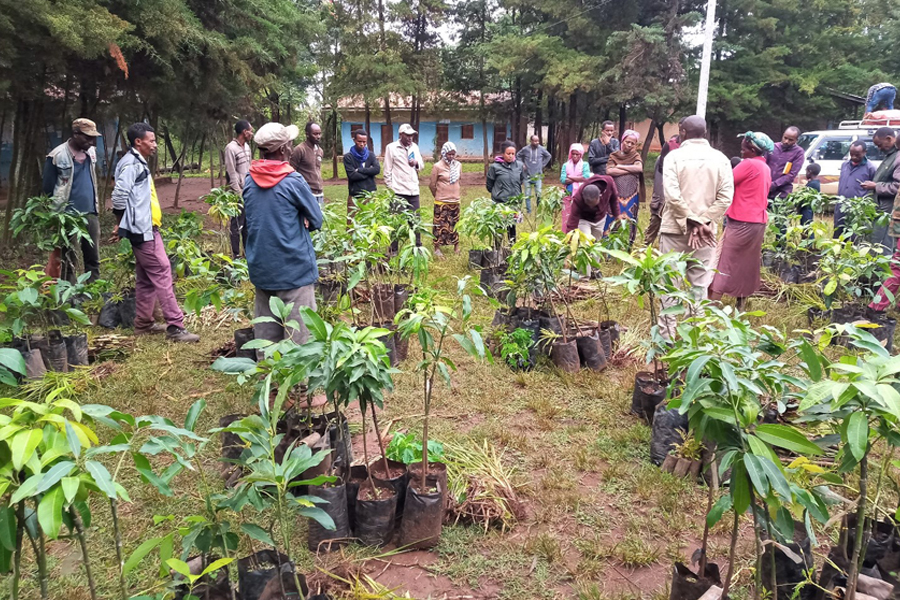
Viewpoints | Nov 16,2019
Nov 23 , 2019
By Tariye Isoun Gbadegesin
African countries cannot abandon “brown” industries – those that depend on oil, gas and minerals – and create a green economy overnight. But they can use them as a tool to achieve a clean, sustainable economy, writes Tariye Isoun Gbadegesin, head of heavy industries and telecoms at the Africa Finance Corporation.
Africa has contributed less to the climate crisis than any other continent, but it will suffer some of the worst consequences. It already is: this year, Cyclone Idai killed more than 600 people in Mozambique, and droughts in eastern and southern Africa left more than 45 million people without enough food. How can Africa achieve economic growth and development without contributing to further global warming?
Africa has an enormous incentive to industrialise: the world’s fastest-growing population and an urbanisation rate that is nearly double the global average. To create jobs for the nearly 450 million young people expected to enter the job market over the next two decades, Africa must accelerate economic growth or face a growing risk of severe social unrest.
But, historically, industrialisation has required burning huge amounts of fossil fuels. Moreover, for most African countries, natural resources like hydrocarbons are vital sources of foreign exchange and budget revenue.
These countries cannot abandon “brown” industries – those that depend on oil, gas and minerals – and create a green economy overnight. But they can use them as a tool to achieve a clean, sustainable economy. That means putting brown industries at the centre of African governments’ green industrialisation plans.
International oil demand may remain relatively strong today, but it is set to drop significantly over the next decade. McKinsey estimates that if electric vehicles (EVs) are adopted at scale, oil demand for road transport will plummet, while total oil demand will peak before 2025. This could leave African oil producers with a supply glut.
But these oil producers have options. By investing in the local petrochemicals industry, which can absorb excess crude supplies, they can lay the groundwork for the manufacture of goods that are critical to the green economy of the future, such as solar panels, wind turbine blades and EV parts. Oil-rich African countries like Nigeria, Angola and Algeria have a narrow window to initiate this shift, following in the footsteps of Saudi Arabia, which is basing its economic-diversification efforts on a robust petrochemicals industry.
Similarly, investment in natural gas can help to propel Africa’s transportation sector toward a green future. A major source of pollution from the hydrocarbons industry is gas flaring: oil producers burn off the natural gas they extract along with oil, often owing to a lack of infrastructure for (or interest in) storing the gas and putting it to productive use. Gas flaring releases massive amounts of CO2 and results in nearly 20 billion dollars in economic losses globally each year.
In Africa, where gas flaring is common, countries should pursue targeted infrastructure investments that enable the commercialisation of abundant natural-gas reserves for use in transportation. After all, while natural gas does not amount to clean, let alone renewable, energy, burning it emits less CO2 than burning diesel. Large trucks and buses running on natural gas emit ten times less nitrogen oxide – a far more potent greenhouse gas than CO2 – than their diesel counterparts.
A third critical element of an African green transition is to capture more value in the global EV supply chain. EVs are expected to account for 80pc of global battery demand by 2030, and Africa holds more than half the world’s cobalt supply and a large share of its rare earth minerals – critical battery inputs. Yet it is China that manufactures the majority of EV and battery components, often using commodities it imports from Africa.
If the Democratic Republic of the Congo kept just 10pc of its cobalt for domestic processing, instead of exporting 99pc of it to China, it could capture part of the 5-billion-dollar global battery market, which is expected to grow nine-fold to 46 billion dollars within the next decade. African producers of lithium and nickel – also used to manufacture batteries – will have similar opportunities to play an important role in the green industries of the future.
Africa’s late industrialisation, which put it at a significant disadvantage in the past, can be its greatest asset in the transition to a green future. With less legacy infrastructure in place, African businesses and consumers have been among the earliest adopters of renewable energy and digital technologies. For example, the continent is home to some of the world’s largest solar power projects.
African countries must now embrace progress in their legacy industries as well. By leveraging existing oil, gas, and mineral assets, they can secure a place in the green economy of the future and play a central role in the global fight against climate change.
PUBLISHED ON
Nov 23,2019 [ VOL
20 , NO
1021]


Viewpoints | Nov 16,2019

Commentaries | Sep 30,2023

Radar | Feb 09,2019

Viewpoints | Oct 26,2019

Fortune News | Jun 22,2024

Commentaries | Apr 19,2025

Commentaries | Dec 28,2019

My Opinion | Oct 14,2023

Radar | Jun 14,2020

Commentaries | May 01,2020

My Opinion | 131507 Views | Aug 14,2021

My Opinion | 127863 Views | Aug 21,2021

My Opinion | 125841 Views | Sep 10,2021

My Opinion | 123471 Views | Aug 07,2021

Dec 22 , 2024 . By TIZITA SHEWAFERAW
Charged with transforming colossal state-owned enterprises into modern and competitiv...

Aug 18 , 2024 . By AKSAH ITALO
Although predictable Yonas Zerihun's job in the ride-hailing service is not immune to...

Jul 28 , 2024 . By TIZITA SHEWAFERAW
Unhabitual, perhaps too many, Samuel Gebreyohannes, 38, used to occasionally enjoy a couple of beers at breakfast. However, he recently swit...

Jul 13 , 2024 . By AKSAH ITALO
Investors who rely on tractors, trucks, and field vehicles for commuting, transporting commodities, and f...

Jun 28 , 2025
Meseret Damtie, the assertive auditor general, has never been shy about naming names...

Jun 21 , 2025
A well-worn adage says, “Budget is not destiny, but it is direction.” Examining t...

Jun 14 , 2025
Yet again, the Horn of Africa is bracing for trouble. A region already frayed by wars...

Jun 7 , 2025
Few promises shine brighter in Addis Abeba than the pledge of a roof for every family...

Jun 29 , 2025
Addis Abeba's first rains have coincided with a sweeping rise in private school tuition, prompting the city's education...

Jun 29 , 2025 . By BEZAWIT HULUAGER
Central Bank Governor Mamo Mihretu claimed a bold reconfiguration of monetary policy...

Jun 29 , 2025 . By BEZAWIT HULUAGER
The federal government is betting on a sweeping overhaul of the driver licensing regi...

Jun 29 , 2025 . By NAHOM AYELE
Gadaa Bank has listed 1.2 million shares on the Ethiopian Securities Exchange (ESX),...